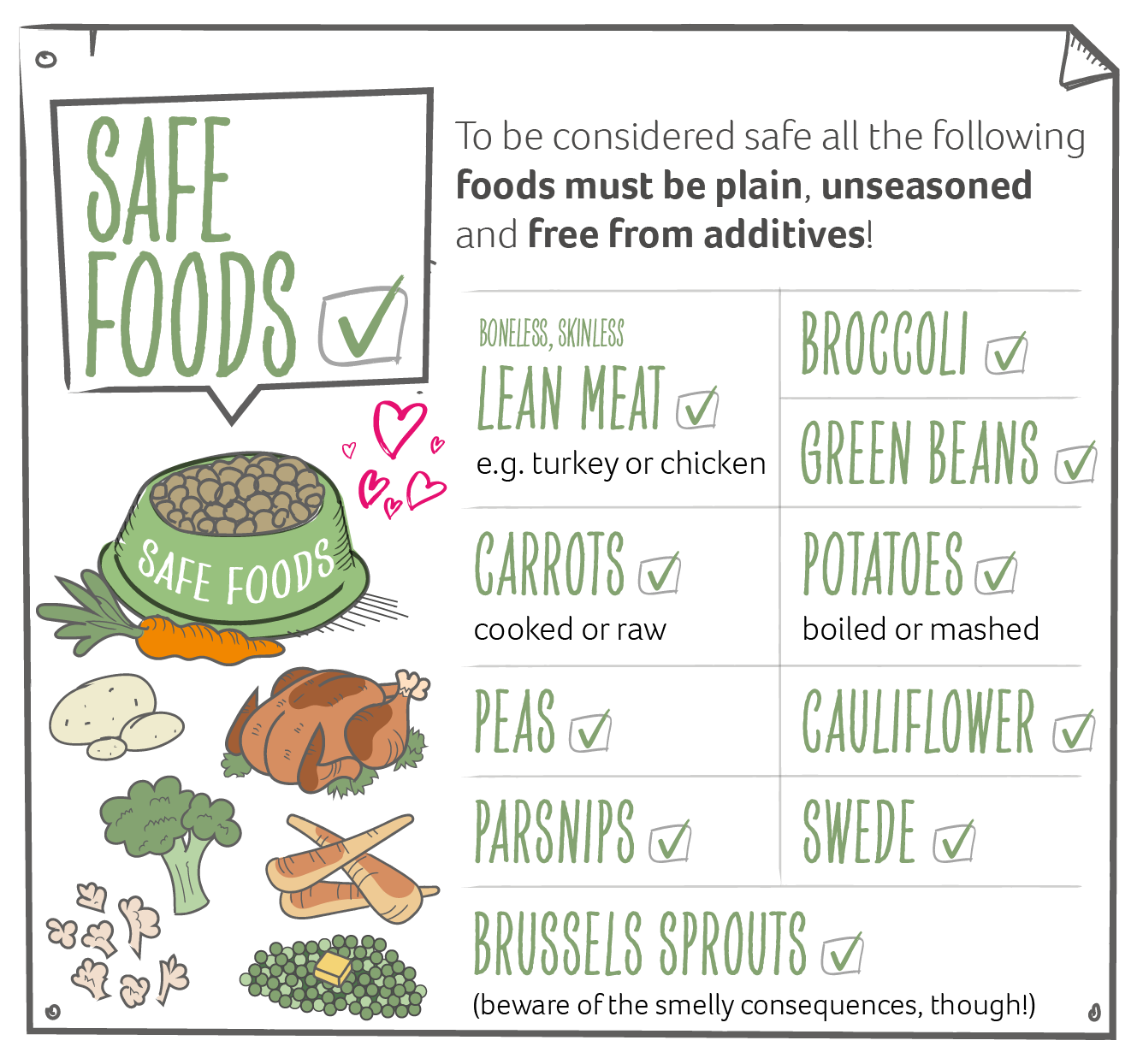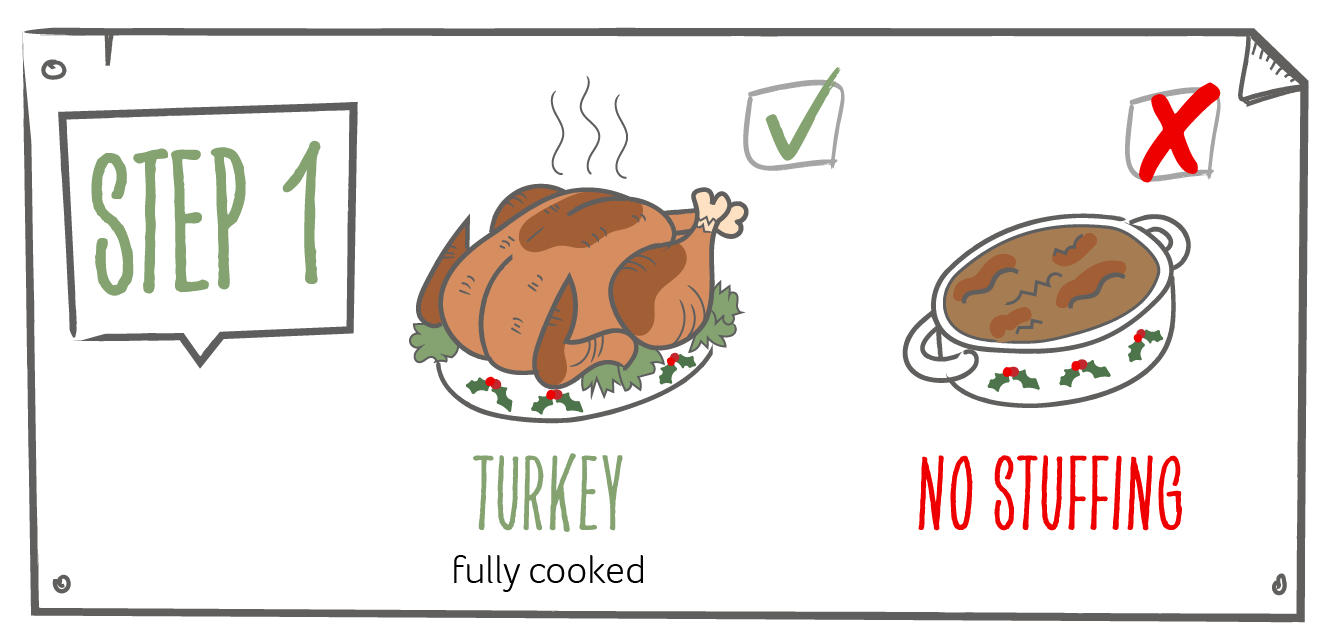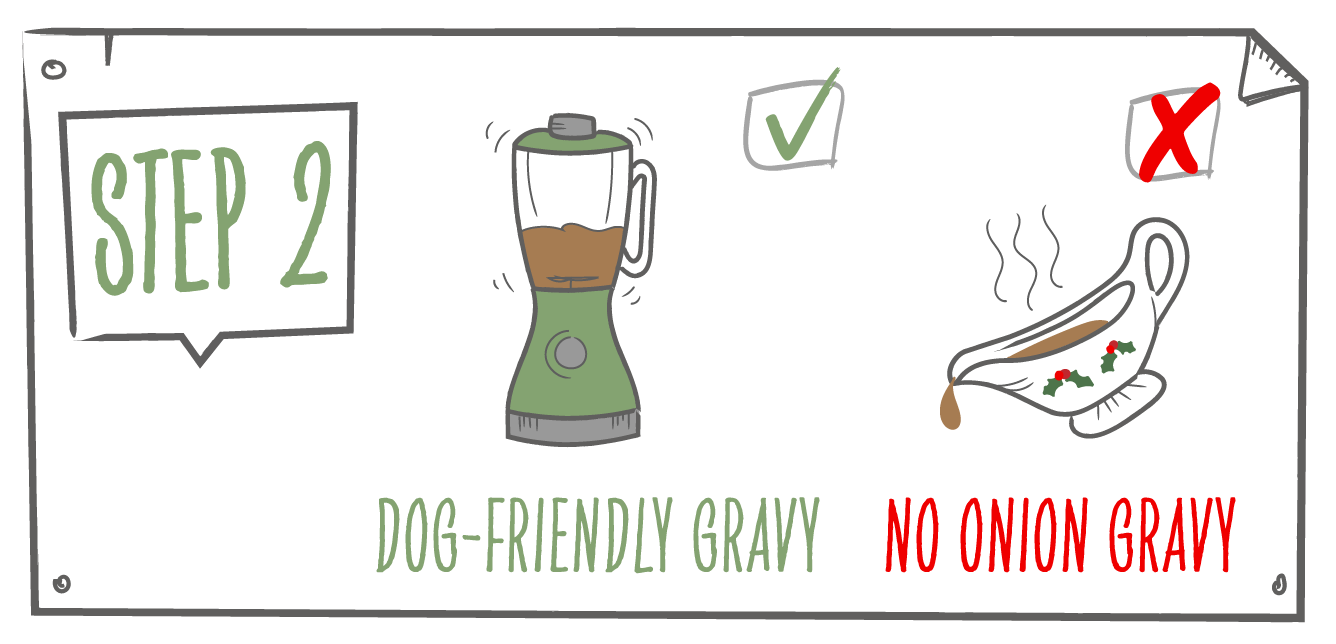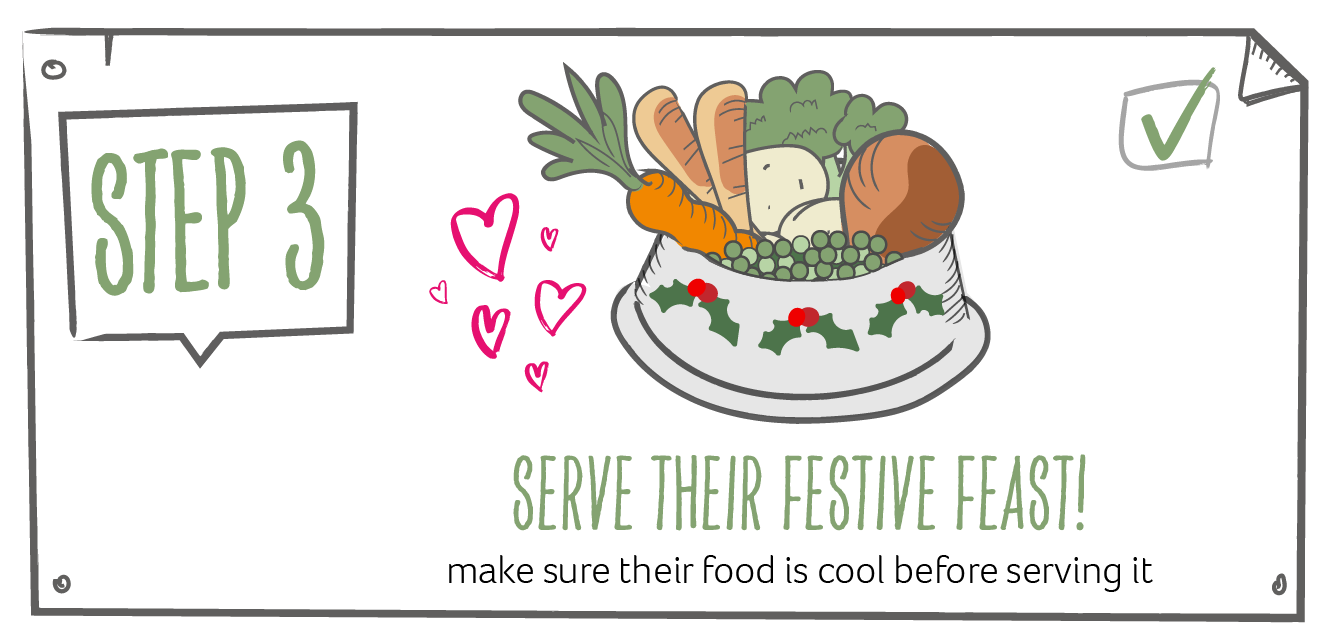13th November 2024
We’ve already explored what your dog can eat for Christmas dinner, so it’s time to discover how to cook a super special festive feast for your best fur-iend!
Within this blog post, we’re including steps that may seem basic, depending on your cooking abilities. The reason we’re adding information like this is to make sure that anyone who wants to create a delicious Christmas dinner for their dog safely can do so.
Before we dive into Christmas dinner prep, it’s important to note that disrupting the feeding routine of dogs who are on specific diets, overweight, or obese could have negative consequences. You can visit our Pet Obesity Hub for guidance on keeping your dog happy and healthy throughout the year.
Remember: If your pet has a particular medical condition or is on a specialised diet, you’ll need to ask your vet whether there are specific foods they’ll need to avoid.
In case you fancy skipping to the section that’s most relevant to you, please click the following links:
• Preparing the ingredients.
• Step-by-step guide to cooking your dog’s Christmas dinner.
• Potentially poisonous ingredients to avoid.
We all want to treat our pets at Christmas time. Though if you’re concerned a sudden change in diet – even one meal – might upset your dog’s tummy, there are plenty of other ways for them to join the festive fun!
Preparing the ingredients
Before you can start imagining what your dog’s Christmas dinner will look like, it’s essential to know exactly what their feast should include!
Here’s a list of plain, unsalted ingredients to choose from, that are safe for your dog to eat in moderation for their special Christmas meal:
- Boneless, skinless, lean, white turkey or chicken meat.
- Mashed potato.
- Boiled potatoes.
- Carrot.
- Peas.
- Broccoli.
- Swede (mashed or chopped).
- Parsnips.
- Green beans.
- Cauliflower.
- Brussels sprouts (beware of the smelly consequences, though!).

How much should I give my dog for their Christmas dinner?
It can be tricky to know how much food to add into our dogs’ festive meals.
The amount we feed them also depends on whether we’re replacing a meal with Christmas dinner or adding a little flavour of Christmas as a treat on the day.
So, the following factors must be considered before deciding how much festive food to make for your dog’s Christmas dinner:
- Their size (for example, smaller dogs naturally eat less).
- Their weight (for example, overweight dogs may be on a restricted diet).
- Their activity levels (for example, active dogs are likely to burn more energy).
- Their normal diet (you’ll want to adjust the amount of dinner to complement what they’re currently fed, e.g. avoid overfeeding them).
Also, you’ll have to think about their usual feeding routine. A meal outside of your dog’s usual feeding times might have an impact on other aspects of their day, e.g. toileting times.
However, to provide general guidance as to the amount of food you might want to offer your dog for their Christmas dinner, it could contain:
- 1 thin slice of meat, e.g. turkey.
- 2 teaspoons of mashed potato or 1 small, boiled potato.
- 1-2 tablespoons of vegetables.
- A splash of homemade, dog-safe gravy.
Important: Always speak to a vet if you’d like to know the exact amount of food it’d be safe to feed your dog at Christmas.
Step-by-step guide to cooking your dog’s Christmas dinner
Cooking Christmas dinner for your dog can be done alongside cooking a festive feast for your family. However, it’s essential that your dog’s dinner doesn’t contain additives, like salt or sugar, that could be harmful in large quantities.
So, we recommend setting aside a small amount of food, that won’t have flavourings or other additions, for your canine companion at the start of the cooking process.
In the interests of safety, children should always be supervised when preparing, cooking, and serving food.
Step 1 – Cook the meat and vegetables
If you’re serving a traditional turkey dinner, it’s vital the meat is fully cooked before feeding any to your dog; information about this is available from the Food Standards Agency. Your dog won’t be able to eat stuffing, so it’s worth choosing a turkey without stuffing, if you’d like your dog to enjoy a small amount on their Christmas dinner.
When preparing the vegetables for Christmas dinner, you’ll need to keep your dog’s portion away from any vegetables that are going to have flavourings added. It can be helpful to treat your dog’s meal as if you’re cooking for someone with allergies, by taking every precaution to prevent cross-contamination with potentially harmful ingredients, like onions. You could visit the Food Standards Agency website for further advice about cooking for someone with allergies for some extra hints and tips!

Step 2 – Make the doggy gravy
Since dogs shouldn’t eat gravy intended for human consumption (due to high levels of salt, fat, and potentially harmful additives), it’s worth making a special gravy just for them.
Simply blend a mix of dog-friendly food, like carrots or peas and sweet potato, with some water, to create a smooth ‘gravy’ to add to your dog’s festive feast.

Step 3 – Serve their festive feast
Once your dog’s portion of turkey and vegetables are thoroughly cooked, and their gravy is the right consistency, please make sure all their food is cool enough before serving it.
Top tip: If your canine companion tends to get a little over-excited and gobbles their food too quickly, consider offering their Christmas dinner in a slow-feeder dish!

Potentially poisonous ingredients to avoid
Keeping our dogs happy, healthy, and safe is essential all year ‘round, though the festive season brings with it an array of potential hazards – such as poisonous foods.
To protect your canine companion from toxic ingestion this Christmas, check out our list of ingredients to avoid when creating their festive feast…
List of toxic ingredients
- Anything containing alcohol.
- Anything containing onions (e.g. stuffing, gravy, sauces, etc.).
- Christmas pudding.
- Christmas cake.
- Mince pies.
- Chocolate.
- Grapes.
- Nuts (e.g. macadamia nuts).
- Dried fruit (e.g. raisins).
- Anything containing xylitol (e.g. some sugar replacers, sweets, certain peanut butters, etc.).
- Fatty meat (e.g. pigs in blankets, as they are quite rich).
- Yorkshire pudding.
- Sauce (e.g. mint sauce, shop-bought cranberry sauce, shop-bought apple sauce, cheese sauce, etc.).
- Blue cheese.
- Cheeses with harmful additions (e.g. fruit, nuts, garlic, onion.).
- Crisps.
- Bread.
- Crackers.
For further advice about keeping your dog safe and happy this Christmas, please visit our article about season’s treatings!
Plus, if you’d like access to expert advice and video consultations with RCVS-registered vets and vet nurses at any time, from anywhere, check out the Joii Pet Care app.
More on our dog blog
Read more news articles, opinion pieces, reviews and personal stories behind our dogs on our blog.
Need dog insurance?
Dog insurance can help cover the cost of veterinary treatment if your dog gets injured or falls ill.
We know pets
Our pets are part of the family. To achieve our vision of a better future for pets everywhere, we work with our partners, vets, and other veterinary professionals who are pioneering the latest advancements in animal care. Our campaigns, articles, and events are crafted to support, educate, and celebrate pet owners, while our policies are designed to provide peace of mind at an affordable price.
Yet our policies don’t just protect against the unexpected – they have purpose, too.
Since we were founded over 25 years ago, we've provided industry-leading policies that protect the nation’s pets, while also making a difference to animal welfare and our planet. Thanks to you, our policyholders, we've donated over £9 million to more than 830 animal welfare charities and conservancies, helping to support vulnerable pets and wildlife around the world.
We’re proud to be wildly different. Are you?
